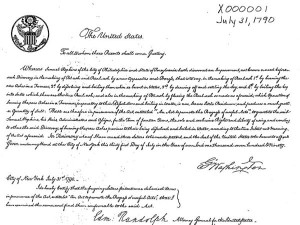A post from our student blogger Brittany
Well ladies and gentlemen we have come to the end of the program. This has been nothing short of an amazing experience. I am elated that you followed me through the highs and lows of the past 10 months and I hope you were able to take away some invaluable information about the program from my point of view that can help you if you’re interested in transitioning into the field of patent law. My apprehension evident in my initial posts has subsided completely and I am ready to tackle my new position as a technical advisor immediately following graduation.
We have a dinner planned for the day before graduation and our families will be able to not only meet Karen and Cathi, but they will also be able to meet the Professors that have been providing words of wisdom throughout the year. I can’t speak for my classmates but I always told my mom about our Professors so she is definitely ready to put some faces to the stories I’ve been telling her all year. It will be bittersweet to say goodbye to everyone, but it’s nice to know that although we came in as students we will be walking away as colleagues and friends.
I can honestly say that I have built some relationships throughout this program that will last a lifetime. We had a very exciting group of students that are intelligent, hilarious and unfiltered (some more than others). I wish them all nothing but success on their next steps in life.
If you or someone you know is considering transitioning into the world of patent law I strongly suggest looking into this and similar programs because I feel much more prepared to start working than I would have had I not participated in the MSPL program. Although the cost of the program was initially a hard pill to swallow since I’d come from a fully paid doctoral program, it was worth every penny. From the relationships formed, the strength of the curriculum, and the extracurricular opportunities, I wouldn’t change a thing. Don’t be afraid to pivot professionally in a direction that better suits your interests and professional goals. Remain true to yourself and you will not go wrong.
